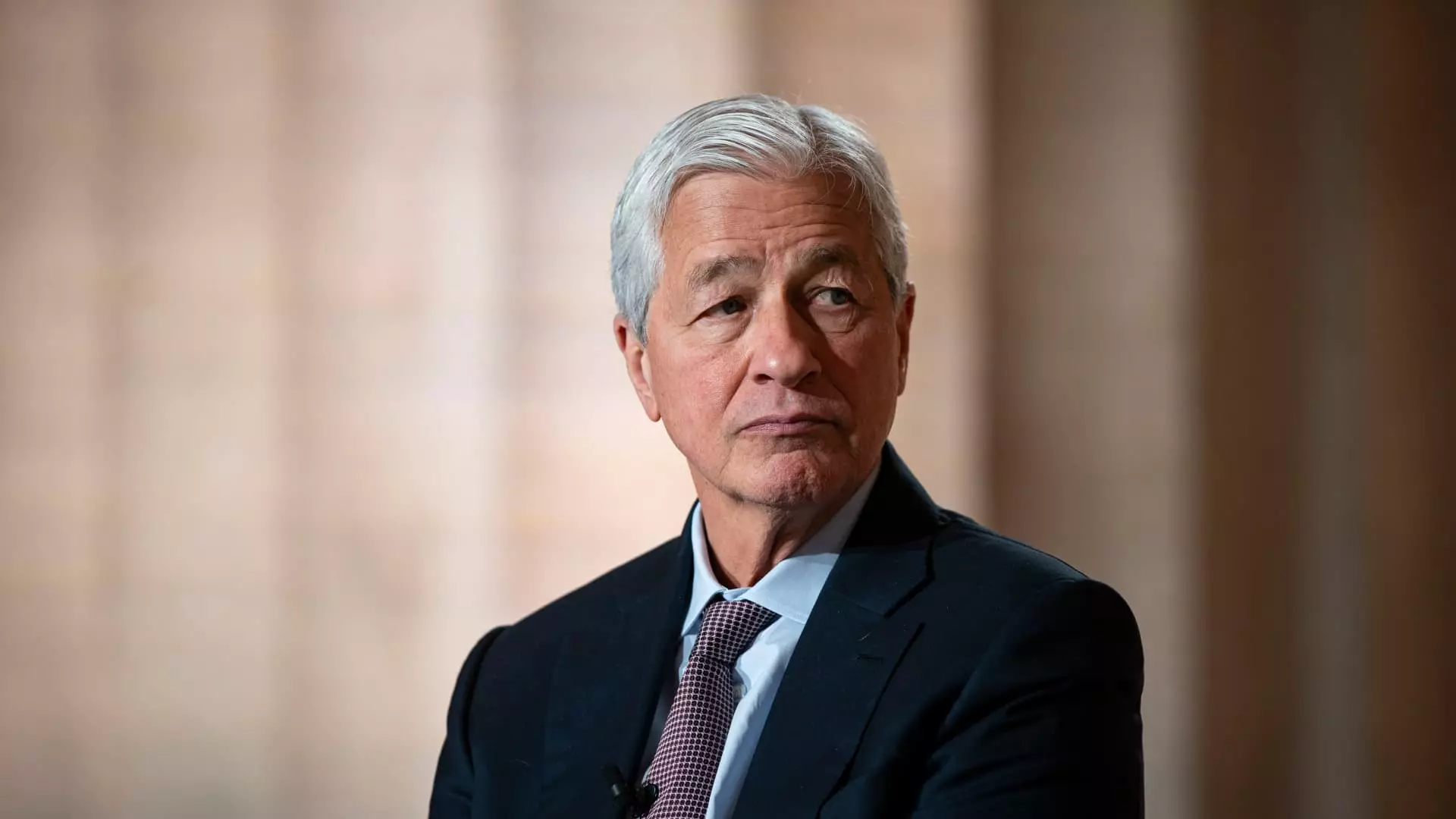In recent discussions, JPMorgan Chase’s CEO Jamie Dimon has expressed a sobering perspective on the U.S. economy, highlighting a likely descent into recession. His comments emerge in the wake of a tumultuous trade war that has left financial markets reeling, particularly as tariffs imposed by the Trump administration create an atmosphere of uncertainty. It’s unsettling to witness an economic landscape where growth is stifled by political decisions, leading to volatility that threatens every American family’s financial foundations.
Dimon’s prescience is disconcerting. The ramifications of escalating tariffs are not theoretical; they manifest in tangible losses. When the Dow Jones Industrial Average plummeted 2,000 points, it wasn’t just numbers on a screen—it represented billions in retirement savings and pension funds evaporating in the blink of an eye. Dimon insightfully remarked that such dramatic declines create a vicious cycle of panic among consumers and investors alike, prompting tough decisions about spending that can further hinder economic momentum.
The Downward Spiral of Consumer Confidence
One cannot overlook the psychological impact of a fluctuating market on consumer sentiment. Dimon noted that as individuals see their retirement accounts dwindle, they instinctively tighten their belts, reducing their spending, which spirals into a deeper economic malaise. This lack of confidence is often more damaging than the economic data itself. It influences real-world behaviors: families delay purchasing homes, businesses hold off on expansion plans, and the entire economy comes to a grinding halt. Thisgoes beyond dollars and cents; it is about the ethos of our nation, adversely affecting the livelihoods of countless Americans.
Moreover, the widening rift between the U.S. and China exacerbates this crisis. As tariffs escalate northwards of 80%, the response from both nations feels more like high-stakes gambling than responsible economic policy. With each retaliatory measure, the uncertainty surrounding future trade relationships deepens, causing further instability in global markets. It’s a precarious game of chicken, where the ultimate losers are unlikely to be the politicians or executives at the negotiating table, but rather the everyday worker whose job security is at stake.
Defying Market Logic: The Role of Leadership
Dimon has, paradoxically, been both a supporter of tariffs and a critic of their escalations. His earlier comments advocating for a nationalistic trade policy seem at odds with his current recognition of the chaos it can bring. This internal conflict within one of the country’s leading financial figures illustrates a broader truth: good intentions in economic policy can lead to detrimental outcomes if not carefully managed. In retrospect, he seems to acknowledge that protectionism can carry a heavy cost, as markets react to the palpable fear created by instability and uncertainty.
It raises questions about the role of corporate leadership in navigating these treacherous waters. Should CEOs like Dimon wield more influence in shaping trade policy, as they are often left to deal with the fallout of political decisions? Should they remain quiet, accepting the directives imposed from on high while attempting to guide their companies through the chaos? Perhaps this tumultuous landscape calls for more collaborative dialogue between Wall Street and Washington—a genuine partnership aimed at fostering stability and growth.
Finding a Path Forward
What is crystal clear amid the turbulence is the urgent need for proactive measures. Dimon advocates for negotiating inclusive trade agreements, emphasizing that re-establishing ties with global partners is essential for stabilization. His call for dialogue over discord is a vital component to restoring consumer confidence and ensuring sustained economic growth.
While Wall Street’s erratic swings can feel distant from the daily struggles of working-class Americans, they are intrinsically linked. Leaders in both the private and public sectors must recognize their shared responsibility in fostering an atmosphere of economic optimism—one that can revive spending, restore trust, and ultimately, invigorate growth. At this critical juncture, it is imperative that we choose cooperation over confrontation, lest we spiral into a recession marked not only by economic downturns but by uncertainty that erodes the spirit of the nation as well.


Leave a Reply